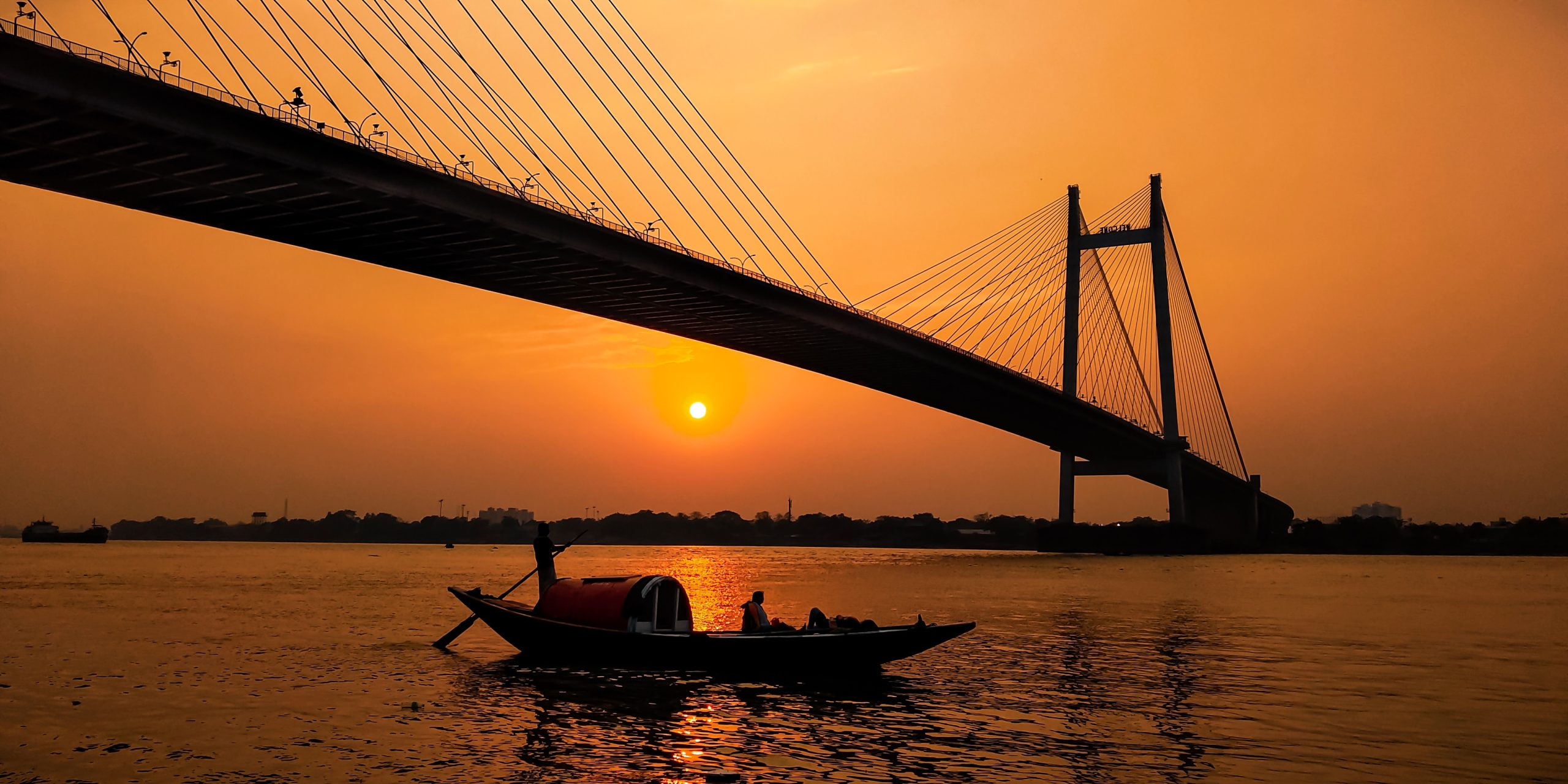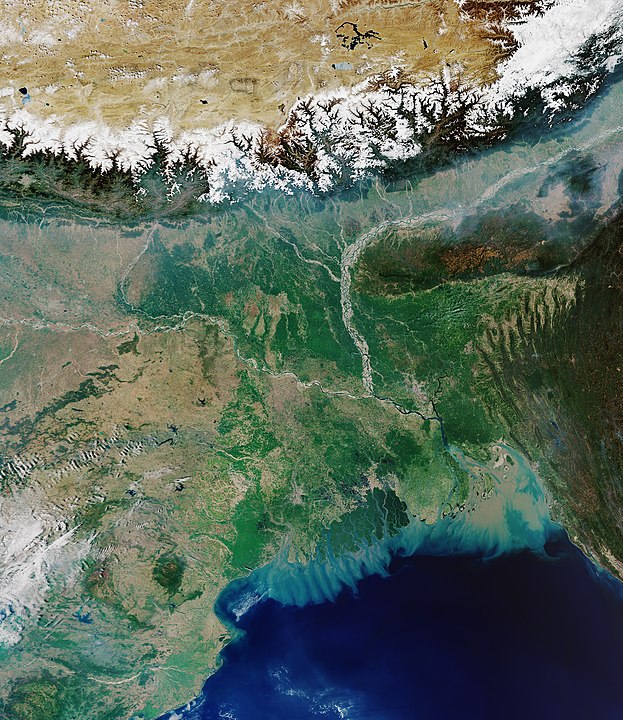
photographed by Subhajit Jana
The very name Ganges brings to the mind’s eye a swell of images that flow, just as the river itself, through 4,000 years of human history: the famous ghats at Varanasi, fishermen in narrow boats, the unmistakable profile of Kolkata’s Howrah Bridge over the Hooghly tributary. This relatively short river (2,510 kilometres/1,560 miles) occupies an outsize place in Hindu scripture, mythology and worship, but its importance is felt by people all over South Asia, and the world.
Some places along the river’s course, such as the major source at the Gangotri glacier, are seen by relatively few. Others, such as the city of Allahbad during the Kumbh Mela, are home to the largest religious gatherings on earth. Our view during our October/November 2025 tour will be from the elaborate temples of Kalna and Guptipara, and as we cruise the river, from the peaceful decks of the R/V Bengal Ganga. I’m tremendously excited to dive (figuratively) with you into the culture and history of India and West Bengal as we follow the flow of the Ganges and the Hooghly.

One of the most important voices to guide us will be that of Rabindranath Tagore, the great Bengali poet, songwriter, playwright and novelist. Rivers such as the Padma and the Ganges shaped Tagore’s writings throughout his long career, as this essay by Parineeta Dandekar so beautifully discusses.
In his Reminiscences, written in 1912, Tagore reflects on the sense of possibility he associates with the Ganges in his youth:
“This was my first outing. The bank of the Ganges welcomed me into its lap like a friend of a former birth. There […] was a grove of guava trees; and, sitting in the verandah under the shade of these, gazing at the flowing current through the gaps between their trunks, my days would pass. Every morning, as I awoke, I somehow felt the day coming to me like a new gilt-edged letter, with some unheard-of news awaiting me on the opening of the envelope […] Every day there was the ebb and flow of the tide on the Ganges; the various gait of so many different boats; the shifting of the shadows of the trees from west to east; and, over the fringe of shade-patches of the woods on the opposite bank, the gush of golden life-blood through the pierced breast of the evening sky.”
Later, at the very end of his life, he writes in Janmadine (Birthday):
This life of mine’s been nurtured by a river
In its arteries flow the gifts of mountain-peaks
Its fields have been shaped by many alluvial layers
Mysterious vital juices from diverse sources have spread themselves in harvests upon harvests
From the east and the west networks of song-streams lull its sleep and wake

What layers will we will peel back as we seek to understand the Ganges in all its complexity? What gifts does it offer? How can humans better nurture the river, just as it has nurtured them?
To see more images of the Ganges all along its length, photographer Sondeep Shankar’s Ganga: A Journey is a wonderful introduction. For background reading, I recommend On the Ganges: Encounters With Saints and Sinners on India’s Mythic River by George Black, and Hooghly: The Global History of a River by Robert Ivermee.
I look forward to travelling with you in this very special, small-group tour, accompanied by Lewie Gonsalves, the president of Worldwide Quest with deep expertise on India. Kolkata and its surroundings are one of my favourite regions of the country, and I can’t wait to explore them again.
— Melanie


